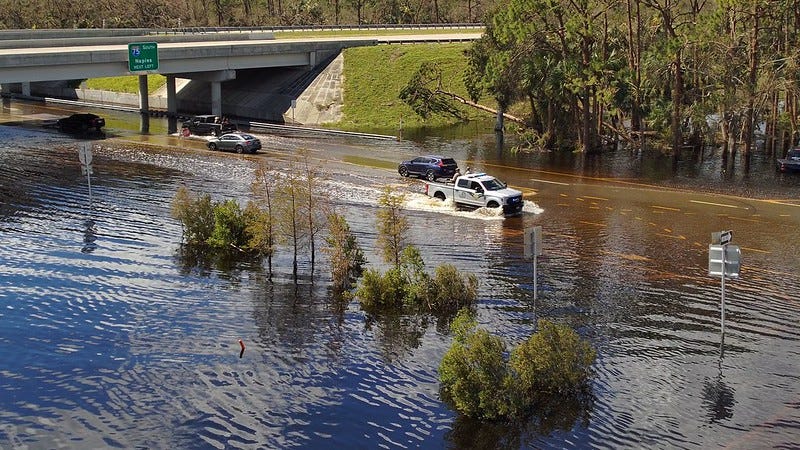In grip of stock market crisis, China unveils new climate disclosure mandate
As Florida moves to ban climate change wording from energy policies
In today’s edition:
— China joins rest of world — except the U.S. — with new climate disclosure rules
— Don’t look up. Florida moves to ban climate wording from energy policies
— Does generative AI’s potential outweigh its massive energy use? Amazon makes its case.
— Ghost ship runs aground, spills oil off of Caribbean Island of Trinidad and Tobago
— Barclays joins HSBC in climate initiative as UK government moves away from green spending
— NOAA launches new satellite to monitor particulate matter in ocean, atmosphere

The Chinese government is in the grip of the worst stock market crisis in years, with foreign money fleeing as more and more restrictions and artificial trading blocks are attempted to prop up sentiment. So, it was notable this week when the top three stock exchanges in the country issued new climate disclosure requirements for large companies to report risk.
The requirements will also apply to dual-listed companies on exchanges in Shanghai, Shenzhen and Beijing and will include so-called Scope 3 reporting of emissions by a company’s vendors and supply chains, which has blocked similar regulations to date in the U.S. and is widely regarded as a negative by big companies.
With the new rules, China joins Australia and the European Union in moving to climate disclosure as a primary reporting requirement for companies so investors can assess their potential risks. The U.S. Securities and Exchange Commission, by comparison, is almost two years late with its rules and faces a slew of lawsuits the minute it files anything.
Granted, China’s regulators don’t have that problem of political opposition. For all the dangers that illustrates, it also allows the government to push climate mitigation faster than the U.S. or Europe, even in a market crisis. That's one reason its auto fleet is moving to electric faster and why it developed more renewable energy last year than the rest of the world combined.
Be careful what you wish for, I know. But once China can push through its latest market crisis, investors will have the benefit of more sophisticated climate disclosures to assess risk from going forward. . . .
Don’t forget to contact me directly if you have suggestions or ideas at dcallaway@callawayclimateinsights.com.
Follow us . . . .
Twitter | LinkedIn | Facebook | Instagram
Tuesday’s subscriber-only insights

Anti-woke Florida lawmakers think that 'climate change' is a naughty term
Keep reading with a 7-day free trial
Subscribe to Callaway Climate Insights to keep reading this post and get 7 days of free access to the full post archives.

